Think you could stomach some sweet, summer strawberries injected with fish genes?
Would you take medication made from rice injected with human genes?
No, I thought not.
How do you feel about goats producing spider-web-like milk stronger than Kevlar? Or engineered salmon that continue to grow larger? It’s about as far from natural as you can get.
Well, that’s exactly what Genetically Modified (GM) foods are – unnatural hybrids, made by adding genes from one species into another, entirely unrelated, species.
Scarily, genetically modified food is everywhere. According to the National Geographic, over 60% of food in US supermarkets directly or indirectly contain GM ingredients. Other sources say that figure is closer to 80%.
And many people don’t even realize how widespread this freak food is. We have US labeling laws to thank for this because they don’t require GM ingredients to be highlighted.
Even though they have only been around since 1994, GM crops sure have left their mark. They threaten our ecosystems, contaminate organic farm produce, and have been shown to cause harm to humans and animals.
Unfortunately, until laws are changed, the best option is to avoid or strictly limit your consumption of GM foods.
I’ve rounded up 20 of the most common ingredients and foods you should look out for.
1. Corn
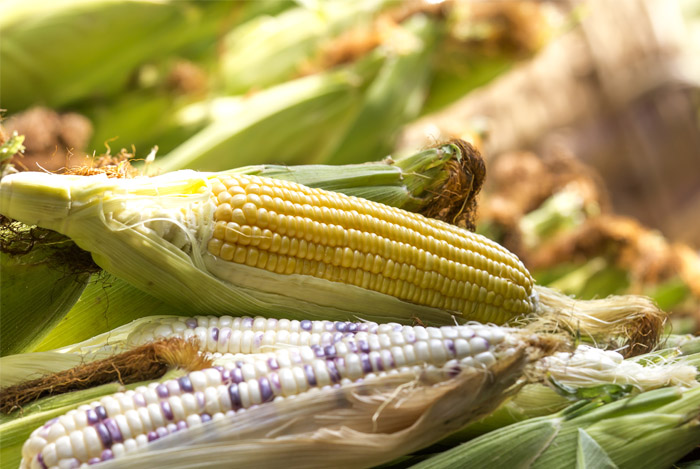 This is probably one of the most well known GM foods out there, and with good reason…up to 92% of corn crops are GM.
This is probably one of the most well known GM foods out there, and with good reason…up to 92% of corn crops are GM.
While most corn on the cob isn’t a GM food, we indirectly consume the modified version, as it’s a prominent ingredient in processed foods and is also fed to livestock.
This modified corn crop has been linked to all sorts of negative health issues. One study has shown how GM corn fed to rats affected the kidneys and liver, two of our main detoxifying organs; along with the heart, adrenal glands, spleen, and blood cells.
2. Soy
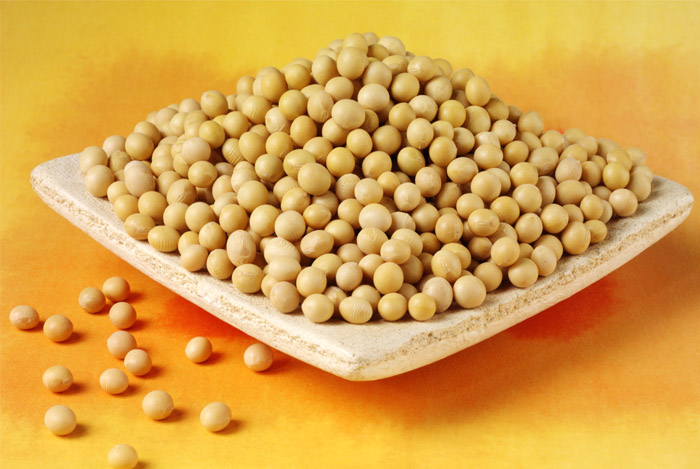 With 94% of soy beans coming from GM crops, this is another major one to watch.
With 94% of soy beans coming from GM crops, this is another major one to watch.
Hidden in processed foods under names like hydrogenated oils, lecithin, emulsifiers, vegetable starch, and hydrolyzed plant protein, it can be really difficult to avoid if you eat any sort of processed food. According to the United Soybean Board, soybean oil is the most widely used edible oil in the US and is found in almost every margarine and shortening.
In a comparison of organic, conventional, and GM soybeans, it was found that residues from the pesticide Roundup were found on the GM soybeans but not on the other two. The GM beans were nutritionally inferior to the organic one, providing less protein, zinc and fiber; but more saturated fat and omega-6 fatty acids.
GM soy has also been linked to pancreatic problems. As a rule, I’d suggest you avoid soy and all the processed foods it hides in.
3. Canola
 A common ingredient in food products such as mayonnaise, salad dressings, and margarine, canola oil is another one of the top GM foods to avoid as 90% of US canola crops are genetically engineered.
A common ingredient in food products such as mayonnaise, salad dressings, and margarine, canola oil is another one of the top GM foods to avoid as 90% of US canola crops are genetically engineered.
What’s really worrying is that, in North Dakota, genetically modified canola was found growing in the wild, far away from planted crops. You have to wonder, will these GM plants eventually ‘take over’ as they cross pollinate with the natural crop strains.
4. Sugar Beet
 If you don’t already know that sugar is bad for your health and should be avoided at all costs, here’s just another reason to banish this addictive white crystal from your diet…it’s a huge GM crop.
If you don’t already know that sugar is bad for your health and should be avoided at all costs, here’s just another reason to banish this addictive white crystal from your diet…it’s a huge GM crop.
In the USA, about 50-55% of sugar comes from sugar beets. Given that 95% of the beets are GM, it’s pretty difficult to avoid unless you cut out all processed foods.
If you really need to feed your sweet tooth sugar, try pure cane sugar, coconut sugar, organic agave syrup, or raw honey.
5. Dairy
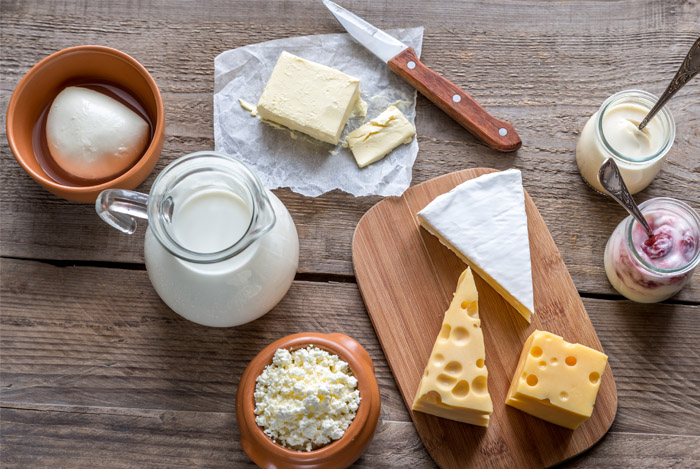 Your mid-morning latte may not seem so appealing when you hear that an estimated 20% of all US cows are pumped full of growth hormones to increase milk production.
Your mid-morning latte may not seem so appealing when you hear that an estimated 20% of all US cows are pumped full of growth hormones to increase milk production.
Even though it has been banned in all 27 European Union countries plus Canada, Japan, Australia, New Zealand, the Bovine Growth Hormone (rBGH) is still allowed in the US, and has been found present in milk distributed for human consumption. It has also been linked to an increased risk of breast cancer.
When compared with organically farmed cows, cows injected with this hormone were found to have produced milk with reduced amounts of healthy fatty acids. These cows are more likely to develop mastitis, a painful udder infection that can lead to blood and pus in the milk.
Do you seriously want to drink the pus-filled milk of tortured cows?
Make a move away from dairy or at least buy organic.
6. Papayas
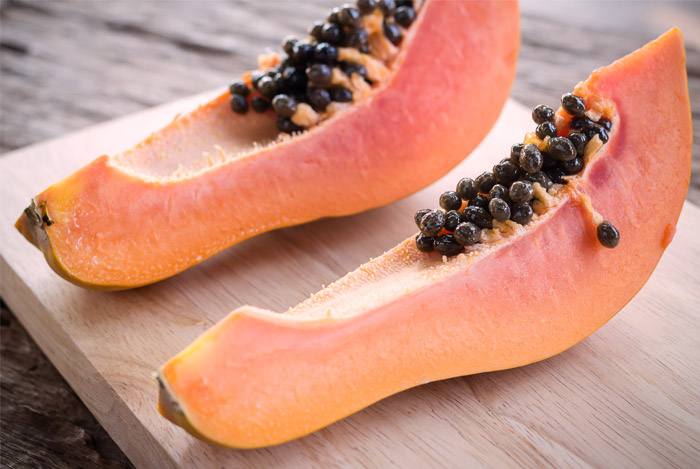 Most of the Hawaiian grown papayas are genetically engineered, and have been since 1999. These tasty tropical fruit mutations aren’t welcome in the European Union though, but you will find them in the US and Canada.
Most of the Hawaiian grown papayas are genetically engineered, and have been since 1999. These tasty tropical fruit mutations aren’t welcome in the European Union though, but you will find them in the US and Canada.
Papaya is also believed to revitalize the skin and so papaya extract is popular in many cosmetics. If it’s not good enough to eat, should you put it on your face?
If you can’t live without this sweet fruit in your smoothies and salads, then choose a variety that isn’t typically GM (or go organic, of course).
7. Squash – Yellow Summer & Zucchini
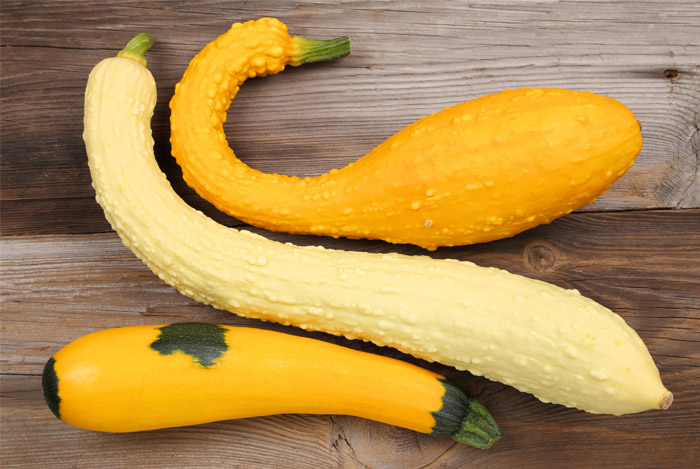 While both offer a ton of health benefits, the yellow summer squash and zucchini in your grocery aisle may not be quite as wholesome as you thought.
While both offer a ton of health benefits, the yellow summer squash and zucchini in your grocery aisle may not be quite as wholesome as you thought.
Some can be modified to resist viruses, numbers of the GM version of these vegetables are relatively small (circa 25,000 acres), but they do exist.
8. Alfalfa
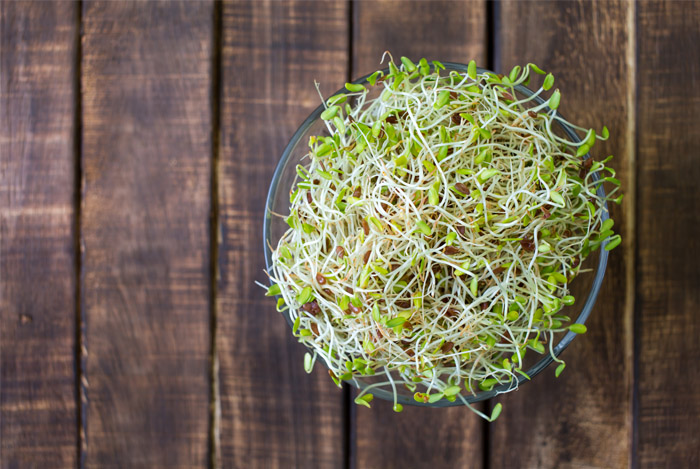 Alfalfa sprouts have a rep as being super healthy don’t they?
Alfalfa sprouts have a rep as being super healthy don’t they?
Throw some on your sandwich, and you can instantly feel good about your ‘clean’ lunch. Well, as long as they’re organic sprouts, you can still enjoy them guilt free.
The primary use for GM alfalfa is the global animal feed market, so traces may still get into your system if you enjoy dairy.
There is also some evidence that GM alfalfa has already contaminated non-alfalfa fields, and non-GM alfalfa crops.
According to Dr. Don Huber, a toxicology and plant pathology expert, because it’s pollinated by insects, there is virtually no way to prevent cross fertilization. What’s more, he says that contamination cannot be eliminated once it’s distributed throughout an area.
9. Potatoes
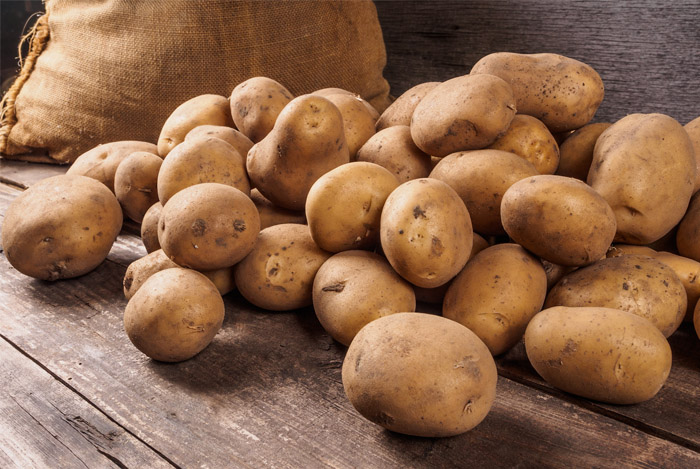 These haven’t quite hit supermarket shelves just yet, but they are on the way. In March 2015 the FDA approved genetically modified potatoes, stating they are ‘as safe and nutritious’ as non-biotech varieties.
These haven’t quite hit supermarket shelves just yet, but they are on the way. In March 2015 the FDA approved genetically modified potatoes, stating they are ‘as safe and nutritious’ as non-biotech varieties.
Soon, you’ll have six different non-bruising varieties of this ‘monster mash’ to choose from.
What’s worrying is that even McDonald’s refuse to use these GM potatoes…have you seen some of the horrible ingredients they serve up?
10. Apples
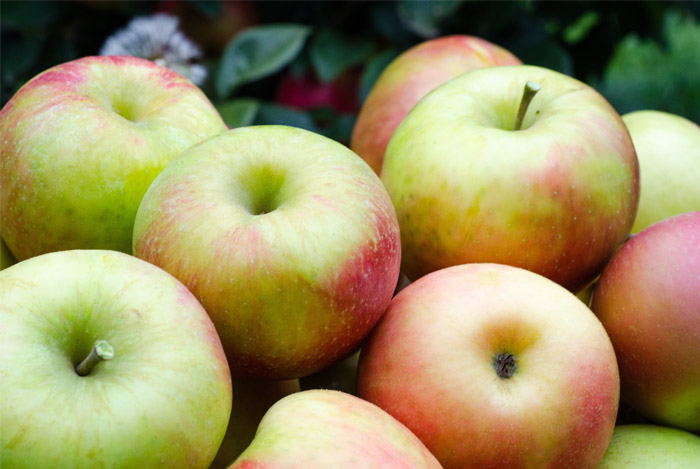 At the same time they approved GM potatoes, the FDA approved two varieties of apples that won’t go brown, all in a bid to ‘decrease food wastage’.
At the same time they approved GM potatoes, the FDA approved two varieties of apples that won’t go brown, all in a bid to ‘decrease food wastage’.
The Center for Science in the Public Interest isn’t happy with the way these crops have been approved, and calls for a more rigorous and compulsory approval process before these foods hit the shelves. The first batch should be on sale in the US in 2017.
I’m betting one of these apples a day won’t keep the doctor away.
11. Cotton Seed
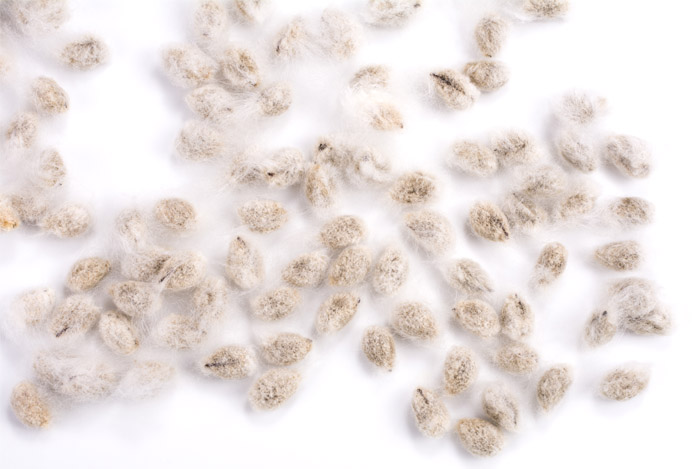 Yeah, it came as news to me too that cotton was used for more than just my shirts.
Yeah, it came as news to me too that cotton was used for more than just my shirts.
But it turns out that cottonseed oil can be found in vegetable oil and margarine, and is used for frying foods like potato chips. According to GMO Compass you can assume that this oil is taken from raw materials that, at least partially, stem from GM plants.
Take a closer look at food labels for this dangerous ingredient, which Dr. Miguel Gonzalez claims has been linked to numerous health issues such as allergies, inflammation, a poor immune system, bleeding, and more.
Now that I’ve mentioned the most common GM raw ingredients, let’s have a look at some of the products they are commonly found in.
I’m betting some of these will shock you!
12. Baby Formula
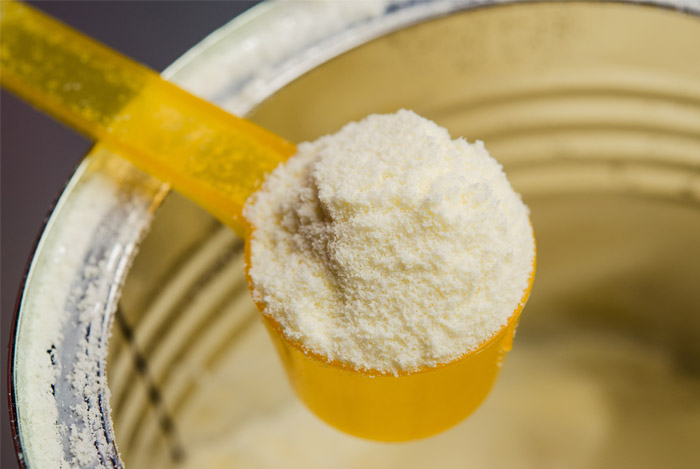 This one is pretty scandalous isn’t it? I can’t imagine any new parent would set out to feed their infant GM foods, but they may unknowingly be doing just that.
This one is pretty scandalous isn’t it? I can’t imagine any new parent would set out to feed their infant GM foods, but they may unknowingly be doing just that.
Both milk and soy products are regularly listed as ingredients in baby food. In fact, three of the top infant formula brands in the US use GM ingredients.
In a controversial study that was retracted due to commercial pressures and then republished, it was found that Roundup (used in GM crops) caused serious hormone disruption, something that could be particularly harmful to developing children.
13. High Fructose Corn Syrup (HFCS)
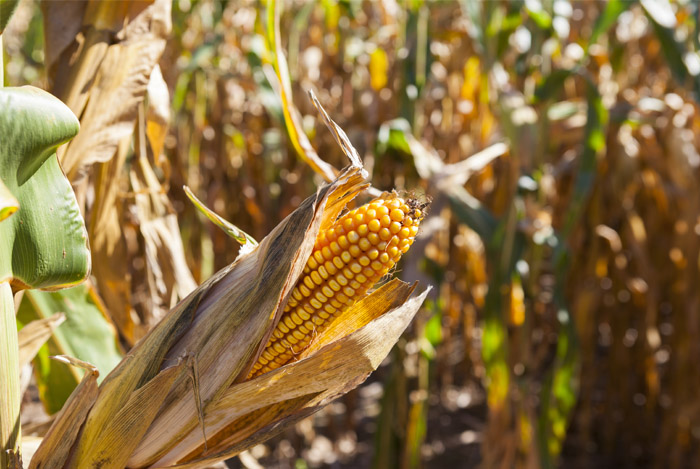 The infamous high fructose corn syrup is so bad on so many levels. It’s found in the cheapest, most nutrient devoid food around. If you see it listed, do not let that product anywhere near your shopping basket. Check the labels on desserts, frozen pizzas, cereal bars, salad dressings, canned fruit, and everything else!
The infamous high fructose corn syrup is so bad on so many levels. It’s found in the cheapest, most nutrient devoid food around. If you see it listed, do not let that product anywhere near your shopping basket. Check the labels on desserts, frozen pizzas, cereal bars, salad dressings, canned fruit, and everything else!
Made from corn (which is most likely a GM strain), it is then converted to corn starch, then corn syrup…then high fructose corn syrup. Does that seem like a healthy, natural product to you?
14. Corn Starch
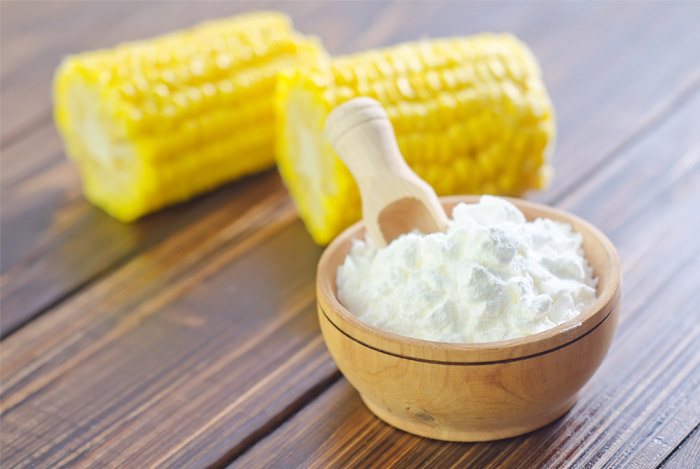 Yes, this is another corn by-product. And yes, it seems GM corn is everywhere.
Yes, this is another corn by-product. And yes, it seems GM corn is everywhere.
Also known simply as ‘modified starch’, make sure to check convenience foods, frozen foods, dairy products, desserts, sauces, and baked goods for this engineered ingredient.
As it offers no nutritional value, and potentially carries all the dangers associated with GM corn that I mentioned above, I’d recommend you steer clear of corn starch.
15. Beer
 From baby formula to beer, it seems nothing is sacred anymore! A recent review of several major beer brands found that many contained harmful biotech products.
From baby formula to beer, it seems nothing is sacred anymore! A recent review of several major beer brands found that many contained harmful biotech products.
If you eat clean all week, then don’t undo your good work by knocking back a few bottles loaded with GM corn syrup, dextrose, GM sugar, or HFCS…not to mention a whole list of other nasty additives.
Some of the beer companies listed by Organics.org as using GM ingredients include Budweiser, Miller, Corona, Michelob Ultra, and Coors Light. The problem is that you won’t find these products listed on the bottles because the alcohol industry has lobbied against labeling laws for years.
I’m not saying you have to give up beer altogether though, after all it does have a surprising amount of health benefits!
To avoid these modified additives, simply stick to craft or micro-brewed beer, German beers that abide by strict ‘purity’ laws, or organic brews.
16. Synthetic Vitamins
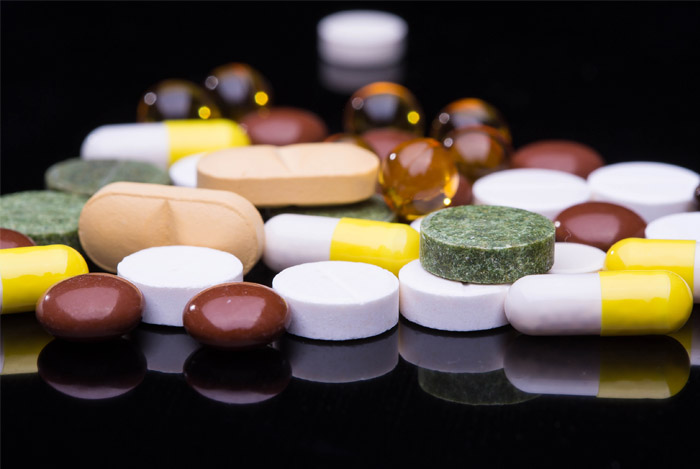 Does your multi-vitamin have GM ingredients lurking in it?
Does your multi-vitamin have GM ingredients lurking in it?
Soybean oil is typically used in most vitamin E supplements, and as we know most soy (94% in case you’ve forgotten) is a GM crop.
Synthetic vitamin C (also known as ascorbic acid) is almost always derived from GM corn.
Do yourself a favor and meet your vitamin needs through whole fruits and vegetables. Try almonds, seeds, and leafy greens for vitamin E, and kiwis, broccoli, and berries for vitamin C. If you must take supplements, look for organic certification.
17. Condiments
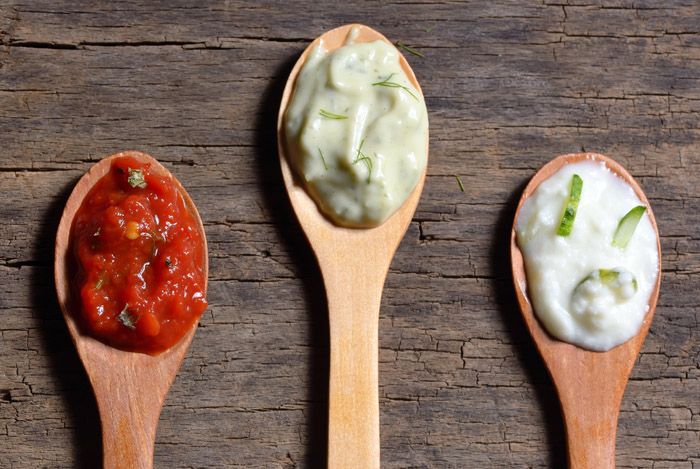 Containing oils, HFCS, soy, flavorings, and emulsifiers that likely come from GM ingredients, avoid this category of processed foods to be on the safe side.
Containing oils, HFCS, soy, flavorings, and emulsifiers that likely come from GM ingredients, avoid this category of processed foods to be on the safe side.
Instead, make your own mayonnaise, ketchup, salad dressings, barbeque sauces and marinades, or buy organic.
18. Bread
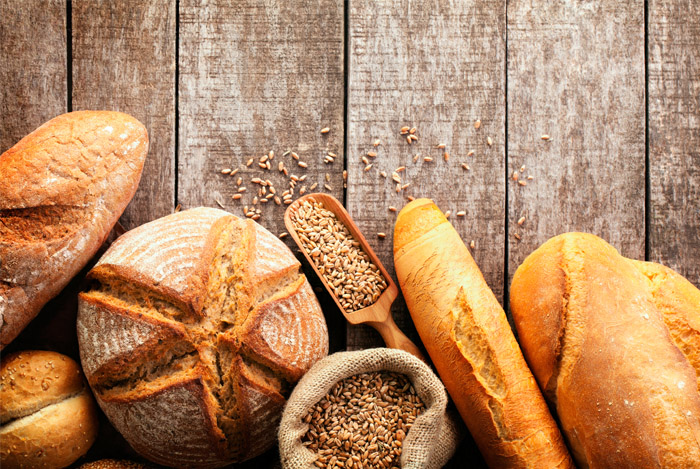 Thankfully we don’t have GM wheat for sale (yet). Even so, your whole grain bread might not be as healthy as you think.
Thankfully we don’t have GM wheat for sale (yet). Even so, your whole grain bread might not be as healthy as you think.
Almost all commercial bread is made with corn syrup and soy based ingredients that come from…you guessed it, GM crops. Other additives might also come from genetic engineering, like ascorbic acid or cysteine.
19. Sausage & Ham
 While genetically modified meat isn’t out there just yet (although a GM salmon is apparently in the pipeline) genetic engineering is often used in the production of sausage and ham.
While genetically modified meat isn’t out there just yet (although a GM salmon is apparently in the pipeline) genetic engineering is often used in the production of sausage and ham.
Ingredients like ascorbic acid, flavor enhancers, enzymes to improve meat aroma, stabilizers from corn, and emulsifiers from soy are often used with these additives frequently coming from GM products.
Plus if you believe the saying ‘you are what you eat’, then be wary of non-organic meats where the livestock are fed GM corn, soy, potato, and cottonseed.
20. Aspartame
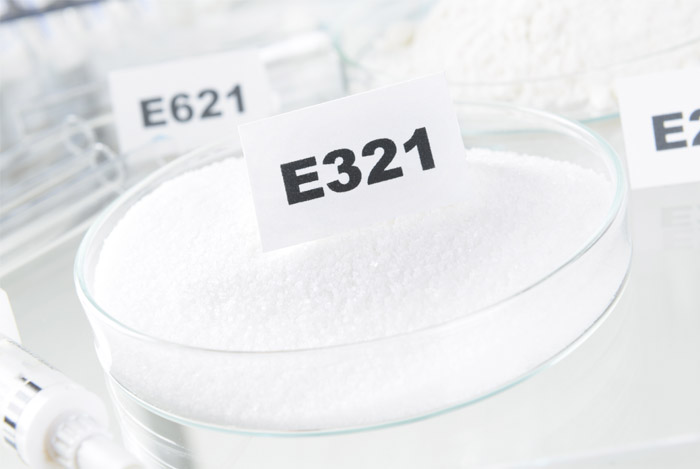 I hope I’ve given you enough reasons to know that this toxic ingredient has no place in your body. Just in case, here’s one more: it’s created with GM bacteria.
I hope I’ve given you enough reasons to know that this toxic ingredient has no place in your body. Just in case, here’s one more: it’s created with GM bacteria.
The original patent states that the genetically cloned and modified microorganisms are grown in tanks and fed so that they excrete the proteins necessary to make aspartame. This excrement is treated with highly toxic methanol to produce the artificial sweetener that goes in your diet sodas.
Sounds delicious, doesn’t it?
While it may not be possible to completely avoid all GM foods, you can limit your exposure by choosing organic produce, which has to be genetically modified organism (GMO) free to gain certification. Avoid processed foods and make your own versions instead, and check out your local Farmers’ Market and see what GMO free produce they have for sale.
Were you shocked by how prevalent GMO foods are in our supermarkets?
The post 20 Of The Worst GMO Foods And Ingredients To Avoid appeared first on Nutrition Secrets.
http://www.nutritionsecrets.com/20-of-the-worst-gmo-foods-and-ingredients-to-avoid/
No comments:
Post a Comment